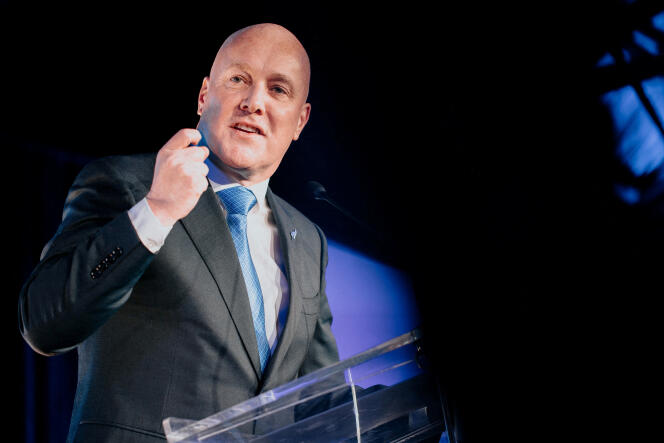


In the aftermath of the general election on Saturday, October 14, New Zealanders have two certainties: power will swing to the right after six years of Labour rule, and their next prime minister will be Christopher Luxon, leader of the National Party, which came out on top in the election. When will he be able to form a government? Nobody knows.
It all depends on the 20% or so of ballots still to be counted. If the preliminary results are confirmed, Luxon should have 50 seats for his party, which, together with the 11 MPs from his Libertarian ally ACT New Zealand, will give him a narrow majority in the unicameral parliament. If he is short of MPs, he will also have to reach an agreement with Winston Peters, leader of the populist New Zealand First party. Well-versed in political negotiations, having decided the outcome of elections in the archipelago on three occasions, Peters may take his time before entering into a coalition agreement.
On the Labour side, the suspense didn't last long. Chris Hipkins, appointed prime minister in January after the surprise resignation of the charismatic Jacinda Ardern, immediately admitted the severe defeat. According to the first results, the center-left is set to lose 31 of its 65 MPs.
"The National Party will lower the cost of living, restore law and order, provide better health care and educate our children so they can live the life of their dreams," Luxon promised a jubilant crowd on Saturday evening.
eaderA business graduate, he rose through the ranks of British-Dutch multinational Unilever overseas before returning to his native land to take over as CEO of Air New Zealand in 2012. In 2019, the former businessman, who has worked meticulously from an early age to achieve his goals as if checking off boxes on a list, resigned to focus on his political ambitions. With dazzling success. In 2020, he was elected MP for the first time. The following year, he became the leader of the National Party, and is now in a position to form a government, despite a difficult start.
The father of two, Luxon had a hard time winning over an electorate suspicious of his multimillionaire CEO profile. "He uses entrepreneurial jargon. He spent over 16 years abroad building his business career. He doesn't look like the usual politician, let alone the average Joe," summed up Oliver Hartwich, director of the think tank New Zealand Initiative. Luxon is also a practicing Christian, whose pro-life stance has caused concern, to the extent that he has had to pledge not to restrict access to abortion.
You have 38.5% of this article left to read. The rest is for subscribers only.
